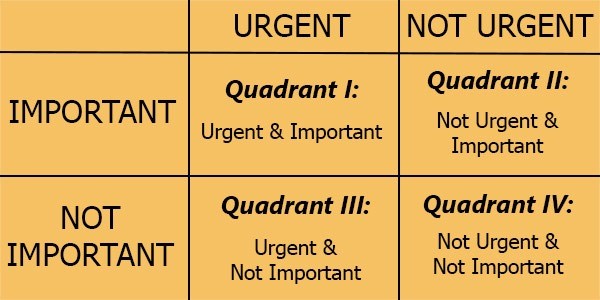If you fail to plan, you plan to fail! Of course, I’d heard this before, but when I started teaching nutrition and wellness to an employee group, I had to think of it in a new way. Not only did I have to do a lot of planning for the class (especially since food was involved), but I was charged with helping people lose a few pounds. I don’t know that anything is so dependent on planning as food preparation and eating. This became very obvious as the class discussions progressed to include their challenges with food-at home, on the road, at work and at other events or gatherings, including restaurants. And most of them had families to make things even more complicated. The secret was to plan for meals. My Feed Your Family Fast Starter Guide will give you what you need to start getting happier and healthier in the kitchen, beginning with planning.
No Plan for Meals Amounts to a Food Crisis
It was clear that if there were no healthy snacks in the desk drawer at work, the vending machine’s call could be heard over everything else. If there were only fast-food places on their shopping route at lunch time on Saturday, that is what lunch would be. And if you don’t plan for mealtime, you’ll find yourself in line with all the other stressed out and hungry people at the grocery store.
This has happened to me many, many times. For years, I didn’t plan meals for the week since I was and still am pretty good at improvising with what I have. Because I didn’t really plan very far ahead, I made a lot of trips to the grocery store for just a few ingredients or made something else completely.
This was a big waste of time and energy that was unnecessary; planning for the week would have really helped. I could also be caught up short by not looking at the calendar and realizing that there was no way I could get home after the baseball game and fix dinner-it would just be too late. Planning for meals really was the secret.
No Plan for Meals Leads to Unhealthy Choices
Are you always out of time? Out of breath? Out of ideas for dinner? I’ve been where you are. Too many taxi runs, too many ball practices, too many meetings…Too much fast food and too many meals on the fly? As the mom (and usually it is the mom), I was in charge of health, which included nutrition (that is, cooking or at least providing food). Somewhere along the line, I came to the realization that the only way I was going to improve the eating habits and nutrition of my family was to cook at home. Once you leave your home, all bets are off for food. There are too many unhealthy menu choices and too many ingredients you don’t want to know the origins of. And too many advertised foods to fend off!
Benefits of a Plan for Meals-the Answer to the Problem
Here is the only thing that has ever worked for me-and some of you will cringe…PLANNING for meals! I resisted the idea for years. I was just too busy, and life was too unpredictable to attempt planning. More recently, I’ve taken up planning again. I wandered all over the Internet researching meal planning programs and apps.
There are some great programs out there that I’ll be telling you more about in future blogs. For now, I just want you to be open to the idea of planning for meals. Of course, some of you are great planners already and have this down to a science. If you are NOT one of these fortunate folks, I hope you’ll listen up to all the great things that can happen as a result of meal planning. I know-it sounds so boring but STOP! Stop the groaning and read on. Here is my list of 10 great things about meal planning. If you plan your meals, you’ll:
1. You don’t have to worry about what you’re making for dinner/lunch on a daily basis.
2. You don’t wonder when you’ll get to the store-less stress!
3. You’ll stop your last minute, panicked trips to the store on the way home from work or ballet class-less stress4. You’ll stop buying things that “look great”, but that you don’t need-save money and reduce stress
5. You can plan more nutritious (nutrient dense) meals-eat better and reduce stress
6. You’ll be able to try new recipes and know you have the ingredients-have fun
7. You can plan to fill your family up at mealtime, and they won’t even think of dessert😊-eat better
8. You’ll be ready for the unexpected if you have a backup plan-less stress
9. You stop feeling guilty about throwing out food-save money!
10. You’ll get more buy-in from your family if you involve them in the meal planning-less stress, more fun
First, Check the Calendar
Now, here are my general suggestions for planning, of course, this after you “get your mind right” about what the kitchen is for-NUTRTION. Plan your week. I’m sure you have a calendar and know what events are up for the week, appointments, practices, meetings, etc. but I know that if I don’t plan for WHEN I’ll get something done, it will most likely end up in the “gonna do” pile. This was a hard lesson for me. I was great at lists of to-dos but not always so good as “when” those to-dos would get done. In his “Seven Habits of Highly Successful People,” Dr. Stephen Covey, drew up an amazing time management matrix. It explained to me finally why I was under stress a lot of the time. Take a look at the matrix below.

Stephen Covey’s Time Management Matrix
If we find ourselves in Quadrant I, we’ll be in crisis mode. As he said so wisely, “What is important is seldom urgent and what is urgent is seldom important.” When important things are put off because they don’t seem urgent, like meal planning, at some point, they will be URGENT and IMPORTANT at the same time. This is a CRISIS-like 5pm Dinner Desperation! We’ve all been there. This is not a good place to be.
So, the first step is to plan a time to PLAN. Plan a time to SHOP. Plan a time to PREP and PUT groceries away. If you have time to prep and stash your groceries all at once, this is great! Especially if you go to a farmer’s market and go crazy like I used to…hopefully you have a plan for what to do with all that produce, but if not, or the plan doesn’t work out, you’ll want to ensure that those beautiful fruits and vegetables don’t go to waste. Plan time to COOK and plan a time to CLEAN UP. You’ll know you’ve really mastered planning when you have a plan for leftovers.
My Meal Planning Strategy
This brings me to my strategy for meal planning:
1. Make your list of family favorite meals.
2. In an EXCEL spreadsheet or similar or even a hand drawn chart, make a note about how long each takes to prepare. Also note something about the expense of each one-this will help with budgeting, even if you just have a code of $, $$, or $$$. You also might want to make a note about which ones could be thrown together at the last minute and which ones take more “planning!” That would be like a slow-cooker meal.
3. Know what you have in the fridge/freezer that needs to be used up. I’ll talk more about using leftovers in a later post.
4. Plan meals for the week with #3 in mind. Know which nights you’ll be especially rushed and plan accordingly.
5. Always have a backup meal in your pantry.
6. Consider clean up.
When I spend hours in the kitchen, I can just feel my husband, the “automatic dishwasher”, beginning to hyperventilate! Do yourself and the cleanup crew a favor by keeping clean up time in mind, not only when planning, but also when preparing a meal. One of my best discoveries of the past few years is parchment paper! I avoid aluminum foil due to its association with Alzheimer’s, so I was so excited when I discovered parchment paper. Potatoes will even brown on it. And cleanup is so much easier. I could go on about one pot meals, sheet pan dinners, etc. but you get the drift. When I spend a lot of time in the kitchen, it’s because I WANT to, not because I have to. That is when it’s stressful.
7. Involve your kids in meal planning and meal prep.
My children always had chores-not enough, I’m sure, but they did have some. If I’d involved them more in meal planning and cooking, they probably would have eaten better and liked vegetables more. I was a very conscientious parent and wanted to learn how I could better pass on my values to my children, including healthy eating.
In my reading, I came across a description of farm family life. I always thought it was interesting that farms stayed in families for generations and they stayed so close as a family. It turns out, children feeling that they’re a contributing part of a family makes them feel more connected and more likely to adopt the values of their family. I only wish I had learned that before my children were school age. Or maybe I should have taken up farming…
Summary
I’d just like to say that the more you involve your family in the whole process of getting fed, the happier you’ll all be. The secret really is planning for meals. The more they help plan the menu and prepare the meal, the less stressed you can be. it will take a little time, but it’s a great investment. Plan meals they like, let them help (great training and nutrition education) and share the load. Families bond when they work together for a common goal. I look forward to sharing more ways to find happiness in the Kitchen with my Happy Kitchen Academy.

